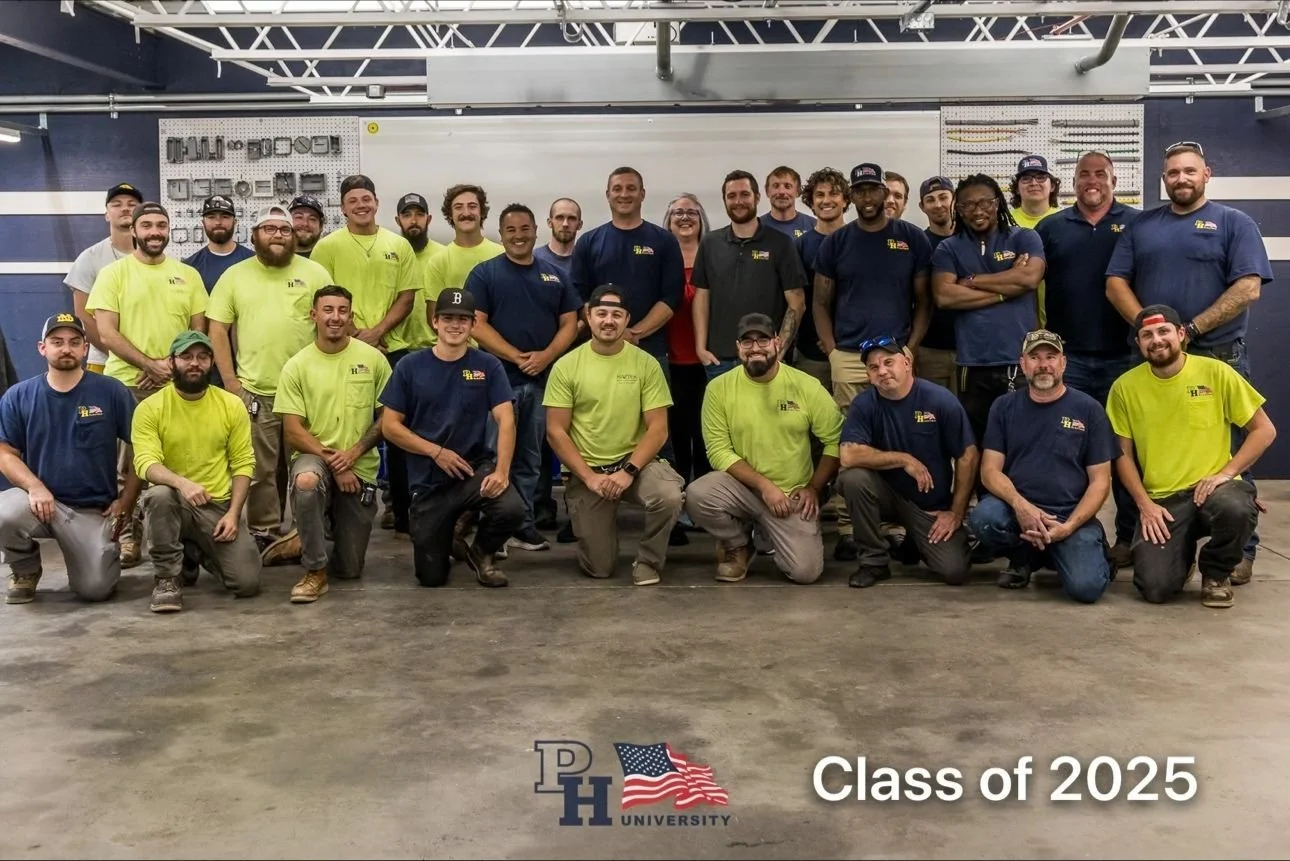Powering the Life Sciences and Building the Workforce of Tomorrow

About seven years ago, P&H Electric was scaling its team to meet growing demand. It faced an industry workforce where electricians were retiring faster than they were being replaced. And among those replacements, newly arrived apprentices’ prior educations weren’t meeting the high standards the company sets for itself.
To ensure it would continue to have a pipeline of highly qualified electricians, NH Life Sciences associate member, P&H Electric, spent two years developing a curriculum to launch its own training school, PH University.
“As we were hiring more and more, we were realizing that the education that the apprentices were getting was not to the standards that we were looking for,” said David Howard, president of P&H. “All these trade schools, they're attendance-based … I was getting frustrated with the system, and I had an idea that, ‘what if we opened up our own trade school?’”
The first cohort recently completed the four-year program, graduating 27 of the 31 apprentices. That completion rate of 87% is more than double the national average of 35%, according to the U.S. Department of Labor. With a new cohort starting each year, PH University now has 90 apprentices enrolled.
The program is free to students; who must be employees of P&H Electric. All the instructors are P&H employees. It’s certified in New Hampshire and Massachusetts, with a foundation on the nationally recognized Mike Holt curriculum.
“We expanded it from there,” said Corey Coleman, director of education for P&H. “So from what Mike Holt provides, we added a bunch of hands-on labs and additional education components to it, and kind of made it our own.”
The company teaches apprentices professional presentation and general business skills, which aren’t often part of traditional training programs. It guides students through the licensing paperwork process and along the path to a trades career.
Since completing training last month, seven members of the first cohort have taken the journeyman exam, and all passed. The rest of their class is expected to take the test soon.
“Over the next few months, we're going to have 20 more journeyman electricians,” Howard said. “Over the next two to three years, the dividends that it's going to pay to our company are going to be amazing, and that's when it's really going to start to solve our workforce problems.”
Although nationally, the overall workforce gap has narrowed, some industries still face shortages of technically skilled workers. The gap is apparent in trades and advanced manufacturing industries.
To adjust to changing markets, PH University can scale its class sizes to demand. They’ve had classes of 10 to 15, up to the inaugural class of 31. They already have 20 students enrolled for the next term in September.
Beyond the hiring needs, the program helps P&H employees feel more connected and collaborative, whether they’re beginners or veteran journeymen.
“The school has changed the entire culture of the company,” Howard said. “Everybody—even the people that you know that aren't really involved in the school—are very proud of the school and what we've developed. We have noticed that our older electricians are much more pleased with the production of the apprentices who come through our program.”
Graduates of the program enjoy it so much that they keep coming to class.
“There's a kind of camaraderie among all the apprentices, and they are helping each other out of school,” Coleman said. “I've been approached by a lot of the fourth years who graduated, who are sad that school's over and … are willing to come help out with any of the classes and assist with the schooling process.”
With about 300 employees, P&H is unique among similar-sized companies in its scope of work.
“Most companies of our size do 95% construction jobs and very little service-type work,” Howard said. “We're more of like 60% construction, 40% service, almost 50%-50%, really. We probably have the largest service division in New England at this point. So not only do we construct or do the electrical wiring in brand new life science type facilities, but we also service those facilities afterwards.”
P&H has worked with companies like Pfizer, Bristol Myers Squibb, Takeda and Lonza. Many of the service electricians are regularly working at those sites. PH University’s training prepares its workers to operate in professional environments, which may have different expectations than a construction site culture. The extensive, hands-on curriculum ensures workers reliably meet the quality standards of life sciences organizations, where uptime and precision are critical.
“Most schools, outside of us, train to pass the electrician exam,” Coleman said. “Here we train people to be lifelong career electricians who are the best at their jobs. There's a whole different attitude to training towards improving the person to be a better electrician, not just taking a test.”
Innovative life science businesses require reliable infrastructure and partners who are creative problem-solvers. NH Life Sciences connects life science organizations with consultants, suppliers and services who can help them grow.
“It's pretty amazing what it's become,” Howard said. “Honestly, it's exceeded every expectation that I ever had by a long shot.”
Join the network of businesses tackling today’s challenges with tomorrow’s talent. To explore what a NH Life Science membership offers, visit nhlifesciences.org/membership.
